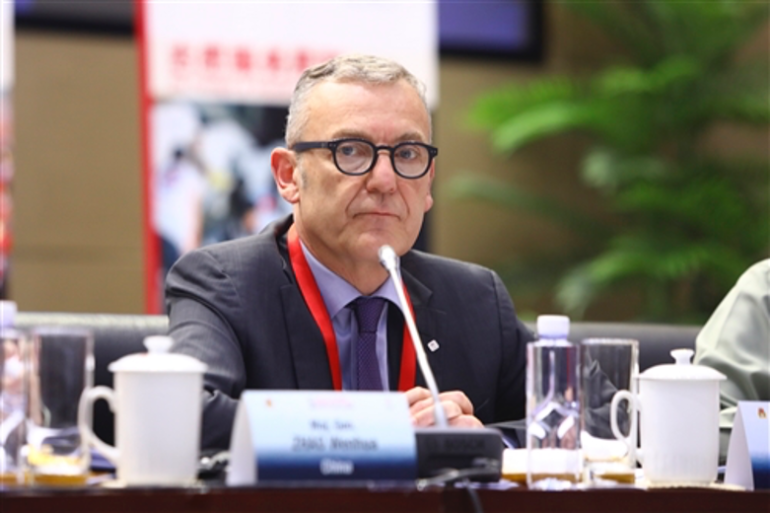The International Committee of the Red Cross (ICRC) in close collaboration with the South Sudan Red Cross (SSRC) has been providing phone call services to the returnees and refugees fleeing Sudan to South Sudan, to help them restore and maintain contact with their loved ones.
Pierre Dorbes, the outgoing head of the ICRC delegation in South Sudan revealed on Thursday, that since mid-April, more than 2,500 phone calls have been facilitated by the ICRC and SSRC teams.
“We are talking about thousands of phone calls that have been provided to returnees, to the refugees, we are talking about thousands of people who live already in refugee camps whom we support in maintaining contact with their families,” he told The Juba Echo in Juba.
The ICRC and SSRC are currently searching for more than 6,000 missing persons, while the fate of over 4,700 persons has been clarified since 2011.
Dorbes said that the conflict in Sudan is having direct impact on the already dire humanitarian situation on it’s neighbor that prior to outbreak of fighting in the Sudanese capital, Khartoum was already hosting nearly 2.2 million displaced people.
“We have more than 140,000 people who arrived in South Sudan from Sudan mostly returnees. It is a big burden for South Sudan, economically it is very complicated and it is also very complicated to relocate the people arriving at the northern border to their places of origin,” he said.
Dorbes said South Sudan is already finding it extremely difficult to absorb all the people arriving at it’s borders.
“South Sudan is deeply impacted not just by violence but also by floods, and drought everybody is talking about climate change,” he said.
In addition, Dorbes noted that the level of (communal) violence in South Sudan remains relatively high despite the 2018 revitalized peace agreement holding largely.
“Many of the wounded people that we have provided with surgical care were coming from this kind of inter-communal violence,” he disclosed.
Dorbes noted that ICRC is supporting resilience building in multiple areas such as agriculture, health, and access to clean water.
“We have identified in the country priority areas chronically impacted by violence, with these communities we engage with them and we try to give them a multi-response, it can be from addressing their protection concerns, it can be related to sexual violence and also it can be a response in terms of agricultural support, primary health care and access to safe water in remote areas,” he said.
ICRC in partnership with the South Sudan Ministry of Agriculture and Food Security in May launched two cassava crop varieties imported from the Democratic Republic of the Congo (DRC) that are resistant to cassava mosaic disease and streak virus.
“The cassava crops we are trying to develop in this country its part of our ambition to be a little bit more sustainable in our humanitarian aid, instead of distributing food we prefer supporting agricultural projects and we try to adapt ourselves to the need of the population of the communities,” Dorbes said.







